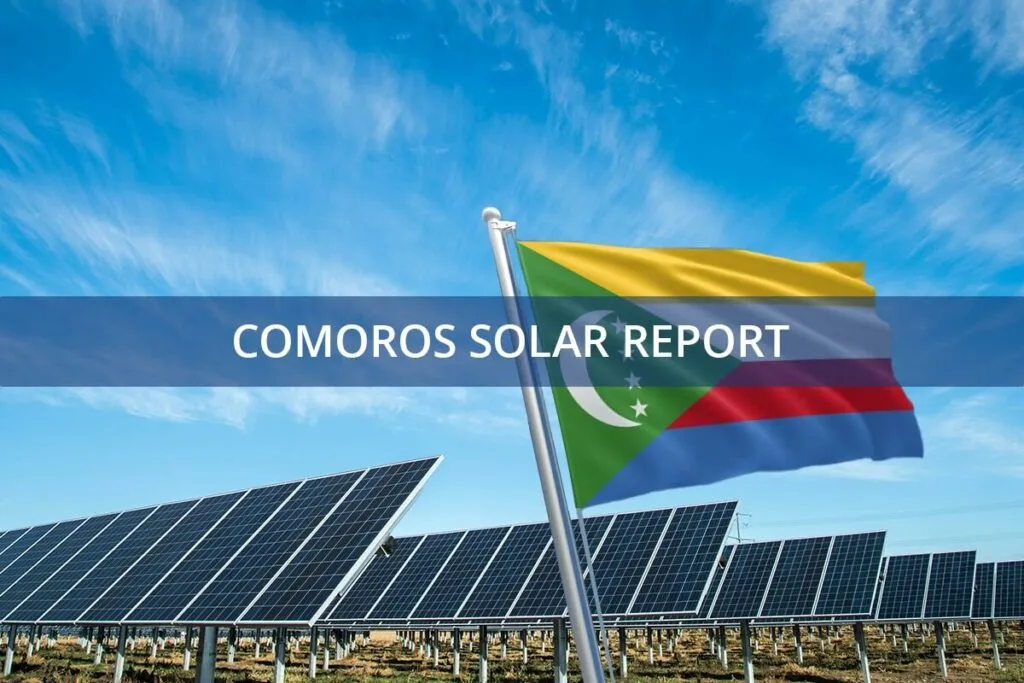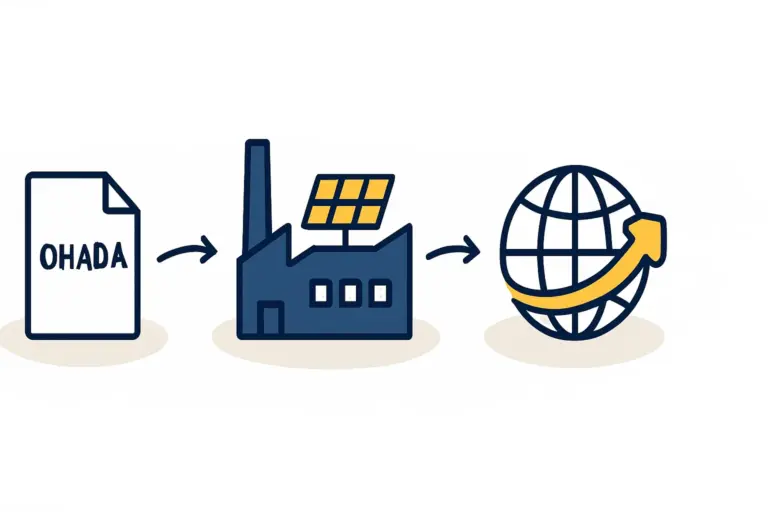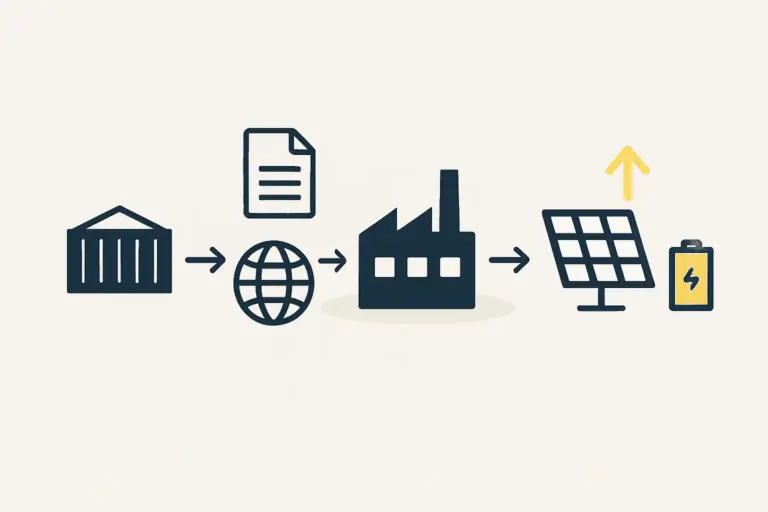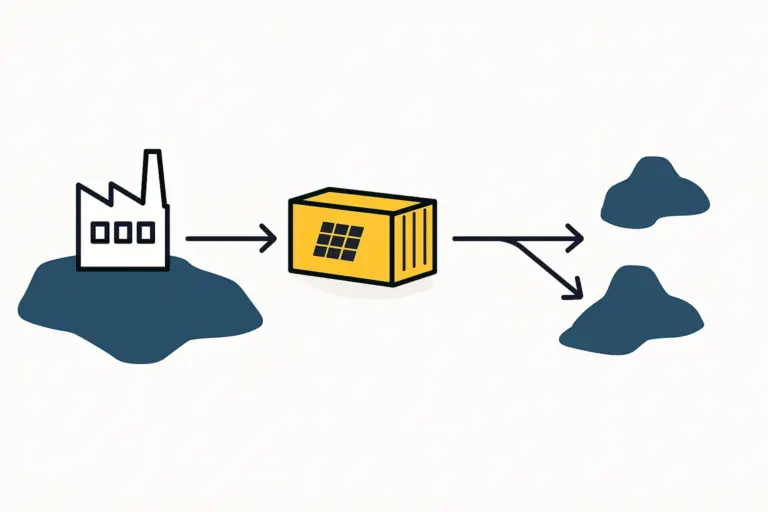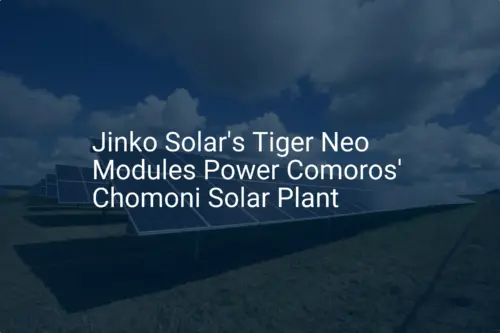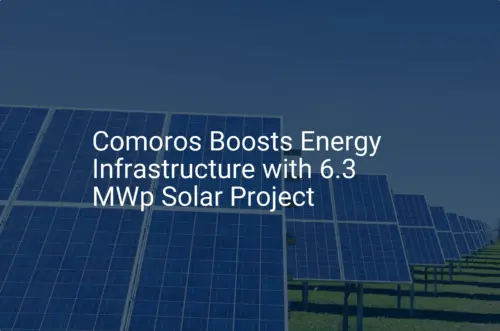For many international entrepreneurs, smaller island nations can seem like complex, opaque markets for industrial investment. Yet these are often the very places where the need for reliable, locally produced energy is most acute.
The Union of the Comoros, an archipelago nation in the Indian Ocean, is a prime example. Heavily reliant on imported diesel fuel and facing some of the highest electricity costs in the region, the country has established a surprisingly robust and investor-friendly legal framework to attract foreign capital into priority sectors like renewable energy.
This guide examines the legal incentives for foreign investors looking to establish solar manufacturing operations in Comoros. We will explore the key provisions of the Investment Code, explain how the ‘Guichet Unique’ (one-stop shop) streamlines administrative processes, and detail the rules governing land acquisition and capital repatriation.
Table of Contents
Understanding the Comoros Investment Code
The core of the Comoros investment regulations is the Investment Code, Law No. 15-014/AU, enacted on December 29, 2015. This legislation is designed to create a secure and attractive environment for private investment, focusing on sectors that drive economic development, including energy.
For anyone considering a solar panel assembly plant, this code offers several powerful, clearly defined advantages.
Key Financial Incentives for Investors

The code establishes a ‘Privileged Regime’ for new investments that meet certain criteria, such as a minimum investment of approximately $50,000 for foreign entities. As a national priority, renewable energy projects are highly likely to qualify. The primary benefits under this regime include significant tax exemptions during the setup and operational phases.
Tax Exemptions During the Installation Phase
Once an investment project is approved, the company receives a temporary exemption from a range of taxes and duties for up to three years. This critical period covers the construction of the facility and the importation of all necessary equipment. Key exemptions include:
- Customs Duties and Taxes: Complete exemption from all imported materials, tools, and solar panel manufacturing machines required to establish the production line.
- Value Added Tax (VAT): Exemption on the purchase of goods and services needed for the project’s implementation.
Based on experience from J.v.G. turnkey projects, these initial exemptions can significantly reduce the required startup capital, lowering the barrier to entry and improving a project’s financial viability from day one.
Tax Benefits During the Operational Phase
Once the facility becomes operational, the incentives continue for a substantial period:
- Corporate Tax Holiday: Approved companies benefit from a complete exemption from corporate income tax for five to seven years.
- Reduced Corporate Tax: Following the tax holiday, the company pays a reduced corporate tax rate of 15% for the next five years—substantially lower than the standard rate.
These long-term fiscal advantages provide a stable financial runway, allowing the business to reinvest profits into growth, training, and scaling operations.
Guarantees for Capital and Investor Security
A common concern for investors entering a new market is the security of their capital and the ability to repatriate profits. The Comorian Investment Code directly addresses these concerns with explicit guarantees:
- Free Repatriation: Investors are guaranteed the right to freely transfer capital, dividends, and profits abroad after settling local tax obligations.
- Protection Against Expropriation: The code ensures that the state cannot expropriate or nationalize an investment, except for reasons of public utility and only with fair and prior compensation determined by an independent third party.
These provisions are crucial for building investor confidence and demonstrate a commitment to international business standards.
The ‘Guichet Unique’: A Streamlined Entry Point for Investors
To simplify the often-complex administrative procedures of establishing a business, the Comorian government created the National Agency for the Promotion of Investments (ANPI). The ANPI operates a ‘Guichet Unique,’ or one-stop shop, as the sole point of contact for investors.
This centralized body guides investors through every step, from initial application to final approval.
How the One-Stop-Shop Works
The process is designed for efficiency and transparency, with clear timelines.
- Application Submission: The investor submits a complete application file to the ANPI, which must include detailed information about the project, its financing, its technical scope, and a comprehensive solar panel manufacturing business plan.
- File Review: The Guichet Unique reviews the file for completeness and compliance with the Investment Code.
- Inter-Ministerial Approval: The ANPI circulates the file to all relevant government ministries (e.g., Finance, Energy, Environment) for concurrent review to save time.
- Final Decision: The ANPI then consolidates the feedback and issues a final decision. By law, the entire process—from submitting a complete file to granting an ‘approval agreement’—should not exceed 30 days.
This streamlined system removes the need for investors to navigate multiple ministries and bureaucratic hurdles independently, a significant advantage in any emerging market.
Securing Land for a Manufacturing Facility
The Guichet Unique also plays a crucial role in land acquisition. The ANPI assists investors with identifying suitable state-owned or private land and navigating the legal procedures for obtaining a lease or title.
This support is invaluable, as securing a suitable industrial site is a critical first step for any prospective manufacturer. The government actively encourages the establishment of industrial zones, and the ANPI can provide information on available plots with access to necessary infrastructure.
Frequently Asked Questions (FAQ)
Q: What is the minimum investment required to qualify for incentives?
A: For foreign investors, the minimum investment is 25 million Comorian Francs (KMF), approximately $50,000 USD. For Comorian nationals or members of the diaspora, the threshold is lower.
Q: Are there any restrictions on the type of business entity?
A: Investors are free to choose the legal structure that best suits their needs, such as a limited liability company (SARL) or a public limited company (SA). The Guichet Unique provides assistance with company registration.
Q: Does the Investment Code require hiring local employees?
A: While not a strict mandate, the code strongly encourages and prioritizes hiring and training Comorian nationals. Foreign companies may bring in essential technical and managerial staff not available locally, but a plan for knowledge transfer and local capacity building is viewed favorably.
Q: How stable is this legal framework?
A: The 2015 Investment Code was established with support from international bodies like the World Bank to create a modern, stable, and predictable environment. The guarantees against expropriation and the clear arbitration procedures outlined in the code provide long-term security for investors.
Conclusion: A Framework Built for Growth
The Union of the Comoros has created a legal and administrative framework deliberately structured to attract and protect foreign investment in high-impact sectors like renewable energy.
The combination of substantial long-term tax incentives, strong capital protection guarantees, and the efficiency of the Guichet Unique one-stop shop creates a compelling case for entrepreneurs looking to establish a solar manufacturing presence in East Africa.
While this framework provides the legal foundation, a successful venture still requires detailed technical and operational planning. Understanding these regulations is a critical first step for any investor aiming to build a viable and profitable solar module factory in a market with immense growth potential.

